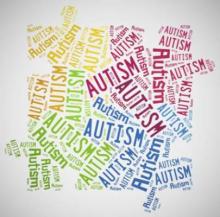BALTIMORE – The American Academy of Pediatrics’ 2006 recommendation to screen all children for autism spectrum disorder at age 18 months appears to have resulted in a substantially earlier age of diagnosis among children seen in at least one U.S. center.
Among children diagnosed with autism spectrum disorder (ASD) and referred to the Children’s Evaluation and Rehabilitation Center of Montefiore Medical Center in the Bronx, N.Y., the average age of initial ASD diagnosis fell from 45 months among 295 diagnosed children born in 2003 or 2004 to 31 months among 217 diagnosed children born during or after 2005, Dr. Maria D. Valicenti-McDermott said at the annual meeting of the Pediatric Academic Societies.
Expressed another way, the percentage of children first diagnosed with ASD at age 4 years or older fell from 67% of children born during 2003 and 2004 to 26% of those born during or after 2005, said Dr. Valicenti-McDermott, a developmental pediatrician at Montefiore.
Although the review did not examine the outcomes of those children, she said that earlier age at diagnosis has been proven in previously reported studies to make a “big difference” for prognosis.
“The earlier you start treatment, the better the outcomes,” Dr. Valicenti-McDermott said in an interview. “More and more literature shows that the age of diagnosis of ASD is very important.”
Interventions that seem to make a difference when begun earlier include applied behavioral analysis and intensive speech and language therapy. A recent study by Dr. Valicenti-McDermott and her associates at Montefiore documented that those early interventions reversed the ASD diagnosis in at least some children, although she noted that many of these children continue to have problems, such as academic difficulties. She also acknowledged that some of this “reversal” may result from “instability” of the ASD diagnosis when made at a relatively early age.
The findings she reported came from a review of all children diagnosed with ASD and seen at Montefiore during 2003-2012. The analysis also showed that the earlier age of diagnosis after 2006 occurred across racial and ethnic groups, with similar reductions seen among Hispanic, African American, and white children.
In a multivariate analysis, the odds ratio for a first diagnosis of ASD at age 4 years or older was fourfold greater among children born during 2003 or 2004, compared with those born during 2005 or after.
Dr. Valicenti-McDermott conceded it was impossible to fully credit the 2006 screening recommendation from the American Academy of Pediatrics for that shift, based on her observational study. Another possible factor was increased awareness among parents about ASD over the time frame studied. In addition, community physicians also may have helped drive earlier diagnosis.

